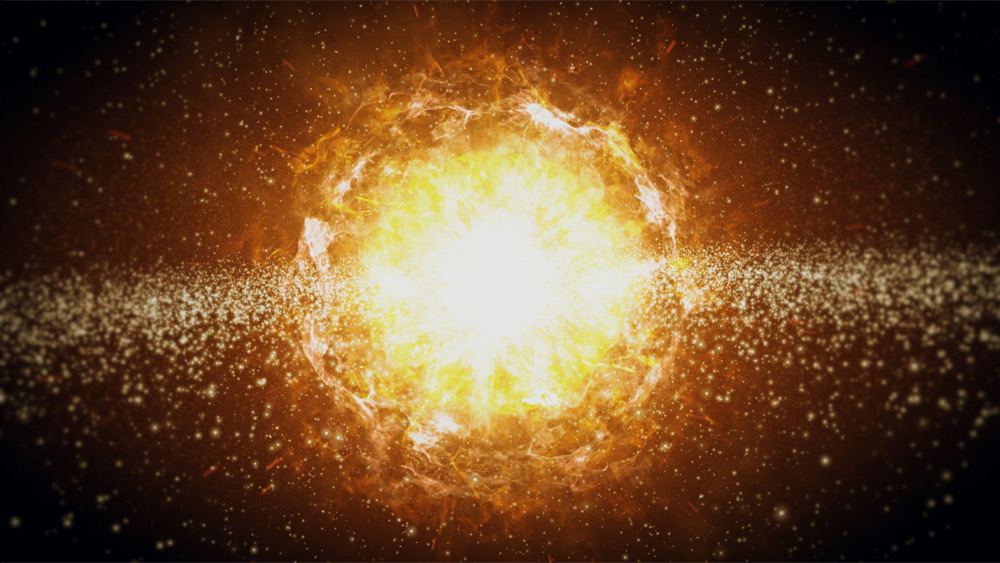In April 2024, some of the world’s leading cosmologists convened at the Royal Society in London to question the cosmological principle—the assumption that the universe is the same everywhere and in every direction.1,2 This is a highly significant development since the cosmological principle is a foundational assumption of the Big Bang model for the universe’s origin.
The cosmological principle assumes that the universe is both homogenous and isotropic. Homogeneity means the distribution of matter and energy in the universe is roughly uniform if one looks at the big picture and ignores differences at smaller distance scales. Isotropy (pronounced i-sä-tro-pee) means that every direction in the sky looks the same as every other direction in the sky. This implies there are no special or “preferred” directions in space. When cosmologists use Einstein’s theory of general relativity to study the universe, they make these two assumptions at the very beginning of their calculations because this greatly simplifies the mathematics involved. In fact, proposed creationist cosmologies have generally assumed isotropy as well, but not homogeneity. However, creationists are open to the possibility of special directions in space. Thus, conventional cosmologists questioning or challenging the cosmological principle is no small matter.
Previous Creation Science Updates have highlighted discoveries of structures in the universe that are so large they have caused even mainstream cosmologists to question the assumption of homogeneity,3,4,5 and there are indications that the universe may not be isotropic. Even the cosmic microwave background (CMB) radiation, admittedly one of the strongest arguments for the Big Bang, shows signs that it is not truly isotropic as it should be if the Big Bang and its accompanying inflation theory are correct.6
Professor Subir Sarkar, a cosmologist at Oxford University and one of the organizers of the meeting, said, “We are, in cosmology, using a model that was first formulated in 1922....We have great data, but the theoretical basis is past its sell-by date.”2
This conference follows high-profile articles questioning whether the Big Bang theory is in crisis,7,8 which we have commented upon.9,10
Clearly, the Big Bang model is in crisis. Yet many Christians embrace it, because it ostensibly “proves” the universe had a beginning, as taught by Genesis. Yet, the Big Bang contradicts Genesis in practically every other way, both in regard to the age of the universe and the sequence in which God brought the heavenly bodies into being. Moreover, Big Bang scientists have long sought ways to “do away” with a beginning of the universe, as the late Stephen Hawking made clear in his book A Brief History of Time.11 It is long overdue for Christians to “wise up” and reject the Big Bang for what it really is: an “argument” and “high thing that exalts itself against the knowledge of God.”12 The Lord Jesus Christ, not a presumed Big Bang, deserves the credit for our universe’s existence.
References
- Cosmology is the study of the universe at the largest scale: its structure, origin, and ultimate fate.
- Devlin, H. World’s top cosmologists convene to question conventional view of the universe. The Guardian. Posted on theguardian.com April 14, 2024, accessed April 15, 2024.
- Thomas, B. Massive Quasar Cluster Refutes Core Cosmology Principle. Creation Science Update. Posted on ICR.org January 18, 2013, accessed April 15, 2024.
- Hebert, J. Giant Galaxy Ring Shouldn’t Exist. Creation Science Update. Posted on ICR.org August 24, 2015, accessed April 15, 2024.
- Hebert, J. A Cosmic ‘Supervoid’ vs. the Big Bang. Creation Science Update. Posted on ICR.org May 7, 2015, accessed April 15, 2024.
- Hebert, J. 2018. Does the Cosmic Microwave Background Confirm the Big Bang? Acts & Facts. 47 (6): 10–14.
- Hooper, D. Is the Big Bang in Crisis? Astronomy. Posted on astronomy.com May 14, 2020, accessed April 15, 2024.
- Frank, A. and M. Gleiser. The Story of Our Universe May Be Starting to Unravel. New York Times. Posted September 2, 2023 at nytimes.com, accessed April 15, 2024.
- Hebert, J. Astronomy Magazine: Big Bang in Crisis? Creation Science Update. Posted on ICR.org May 21, 2020, accessed April 15, 2024.
- Hebert, J. New York Times Editorial: Big Bang Unraveling? Creation Science Update. Posted on ICR.org September 24, 2023, accessed April 15, 2024.
- Hawking, S. 1988. A Brief History of Time. New York, NY: Bantam Books, Chapter 8, second paragraph.
- 2 Corinthians 10:5.
* Dr. Jake Hebert is a research associate at the Institute for Creation Research and earned his Ph.D. in physics from the University of Texas at Dallas.














